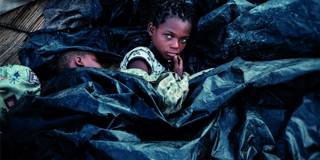
Keeping Climate Justice Alive
Increasingly extreme weather is not only adding to the vulnerability of the world’s poorest communities, but is also hitting developing countries’ bottom lines, making it more difficult for them to invest in resilience. If the Global North is serious about climate justice, it must step in to break this vicious cycle.
LILONGWE – Africa is on the front lines of climate change. In what has become a dangerous vicious cycle, extreme weather is not only adding to the vulnerability of the world’s poorest communities, but also hitting countries’ bottom lines, making it more difficult for them to invest in resilience.